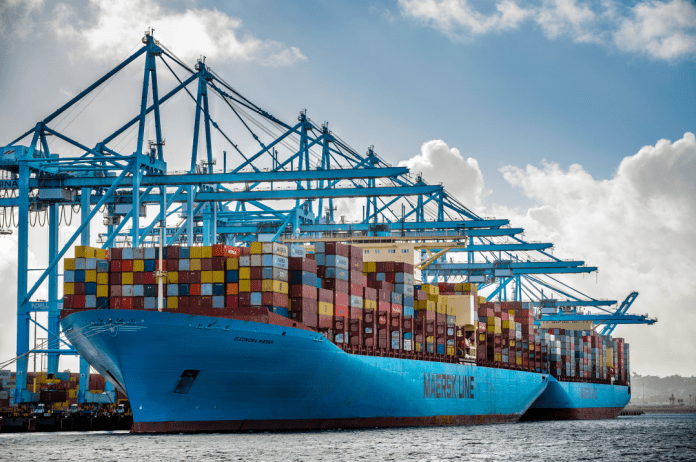The drastic drop in AP Moller-Maersk’s 2Q 2023 earnings shows that the Danish group’s strategy of integrating shipping and logistics has flopped, while its passive fleet expansion has resulted in losing market share to its competitors, according to Linerlytica’s latest report.
Maersk’s net profit in the second quarter of the year fell to US$1.5 billion, from US$8.6 billion in 2Q 2022. In addition, the company’s turnover across its operations declined to US$13 billion, from US$21.7 billion in the same quarter last year.
AP Moller-Maersk also cautioned that container demand is expected to weaken for the rest of 2023.
In its report released on 7 August, Linerlytica noted that while AP Moller-Maersk appeared to blame weakening demand for its performance, the Danish group’s results laid bare the failure of its integrator strategy while losing market share to its competitors.
The consultancy noted that industry-wide earnings remain better than pre-Covid-19 levels.
Linerlytica remarked, “Maersk’s failure to protect its liner market share in the last three years has cost it dearly, as it gave up at least US$4 billion in foregone profits that it would have been able to generate if it had maintained its global capacity share at 18% instead of the current 15.5%. In its stead, Maersk has chosen to invest almost US$10 billion of incremental capital in its logistics services since 2020 as it pivoted to the logistics integrator strategy. However, in its latest financial report, Maersk’s logistics business generated EBIT earnings of only US$115 million on invested capital of US$10.5 billion for a quarterly return on investment (before tax) of just 1.1%. Total invested capital in the logistics segment has risen from US$800 million at the beginning of 2020 to US$10.5 billion after a series of well-publicised acquisitions that have consistently under-delivered with earnings that are well short of its cost of capital.”
The dismal performance of Maersk’s logistics business pales in comparison to its liner and terminal segments, both of which have received little or no new capital investments in the last three years. The Ocean business generated EBIT earnings of US$1.2 billion on invested capital of US$29 billion for a 4.1% return on investment, while its APM Terminals recorded EBIT earnings of US$269 million on invested capital of US$7.8 billion for a return of 3.4%.







